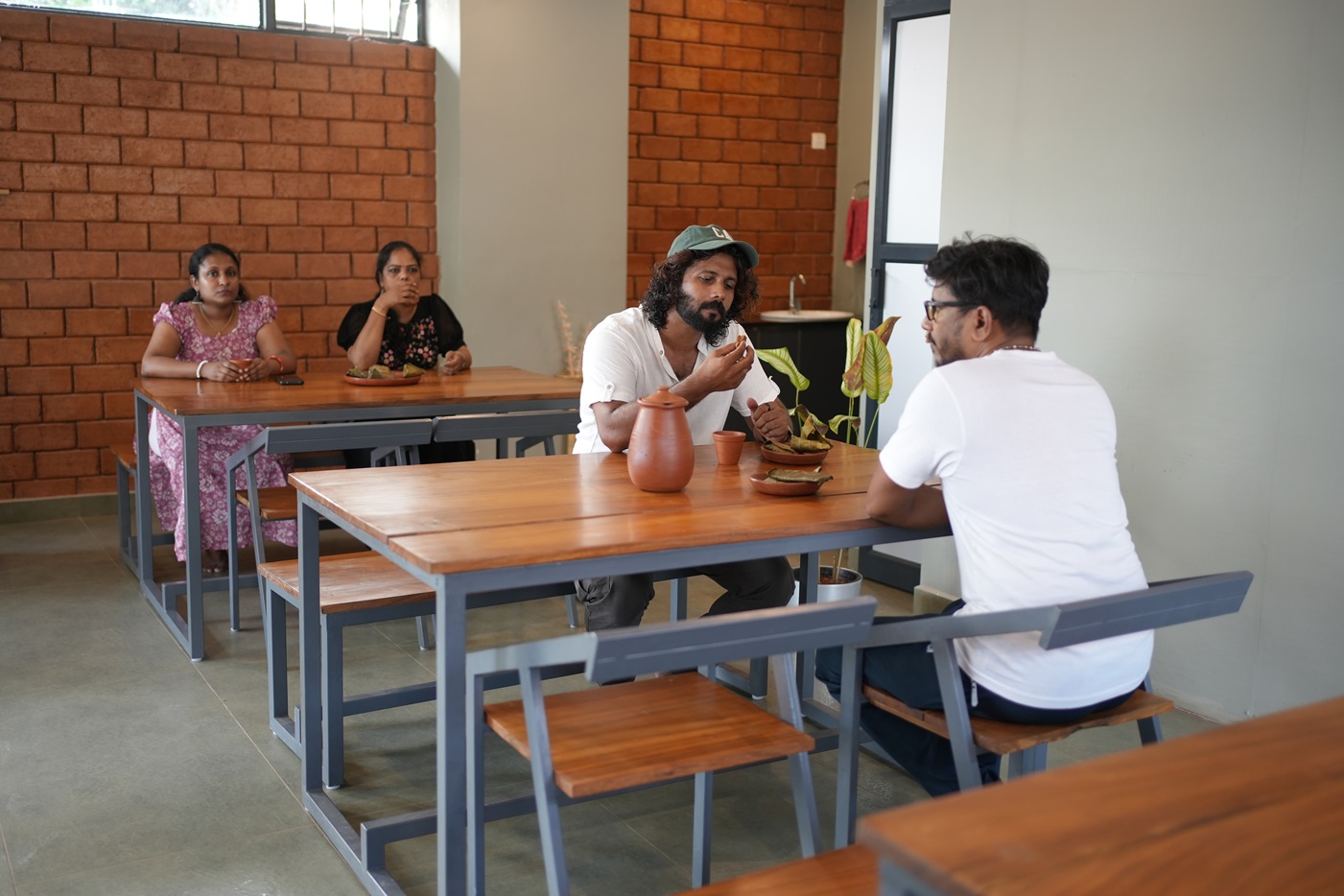Welcome to the Diet Hub
@



At Ennakkathara Arya Vaidyasala, the Diet Hub is a specialized platform or service designed to provide nutritional guidance, healthy meal plans, and dietary support to individuals aiming to improve their overall health and wellness. It can be offered as part of a wellness center, health clinic, or even within an Ayurveda hospital canteen, as discussed earlier. The concept of a Diet Hub integrates customized nutrition and balanced eating with the goal of addressing specific health needs, maintaining a healthy lifestyle, or managing chronic conditions like obesity, diabetes, or heart disease.
Core Services Offered by a Diet Hub

Personalized Diet Plans
The Diet Hub at Ennakkathara Arya Vaidyasala provides personalized meal planning based on the individual’s health goals, lifestyle, and preferences. It can tailor plans for:
- Weight management (weight loss or weight gain)
- Managing chronic conditions (e.g; hypertension, diabetes, cholesterol)
- Detoxification programs (like cleansing or fasting)
- Gut health (promoting digestive balance and improving microbiome health)
- Ayurvedic-based diets: Tailoring meals to balance Vata, Pitta, and Kapha doshas

Healthy Meal Options & Recipes
- Nutrient-dense recipes tailored to specific dietary needs
- Meal prep assistance for convenience
- Balanced meals with the right macronutrients and micronutrients

Nutritional Counseling and Support
- One-on-one consultations with a dietitian or Ayurvedic nutritionist
- Holistic guidance focusing on foods suitable for individual doshas
- Dietary strategies for managing health conditions
Discover the Benefits of a Diet Hub
Health Education & Awareness
Workshops and cooking classes: Hosting educational sessions where clients learn how to cook healthy meals, understand food labels, and adopt Ayurvedic practices in everyday life.
Convenience & Flexibility
Online support and resources: Many Diet Hubs offer online consultations, recipe sharing, and digital meal planning tools, making it convenient for users to follow their nutrition plans wherever they are.
Special Focus on Sustainable, Natural Foods
Organic and locally sourced foods: A Diet Hub may emphasize the use of organic, fresh, and local produce to enhance the nutritional value of each meal.
Weight Management and Fitness Support
Nutrition and fitness integration: Collaborating with fitness trainers to integrate diet plans with exercise routines to help clients meet their fitness goals.
The Role of Ayurveda in the Diet Hub
For those focusing on Ayurvedic principles, the Diet Hub can play a crucial role in providing a dietary regimen that aligns with the ancient wisdom of Ayurveda. Ayurveda emphasizes the idea of maintaining balance through diet, lifestyle, and mental well-being.
Personalized Nutrition Based on Doshas
Each person has a unique constitution (Prakriti), and the Diet Hub would recommend foods that balance the Vata, Pitta, and Kapha doshas. For instance:
- Vata types thrive on warm, moist foods like root vegetables.
- Pitta types benefit from cooling foods like salads and dairy.
- Kapha types prefer light, spicy, and warm foods.
Seasonal and Local Eating
The Diet Hub might also emphasize eating according to the seasons and local produce, as Ayurveda recommends adjusting the diet to match seasonal changes to maintain balance. For example:
- Winter: Warming foods like soups and stews.
- Summer: Cooling fruits and light salads.
- Monsoon: Detox-friendly, easily digestible meals.
The Role of Agni and Ama
- Agni (digestive fire): Ayurveda believes that a strong digestive fire leads to proper digestion, assimilation, and elimination. The Diet Hub can help balance Agni by suggesting easily digestible foods, herbs, and spices like ginger, cumin, and fennel.
- Ama (toxins): The Diet Hub would offer cleansing or detoxifying foods that help eliminate Ama from the body, such as kitchari, lemon water, and herbal teas.
Ambience and Experience in the Diet Hub

The overall ambiance of the Diet Hub is key to promoting health. The setting should be calm, welcoming, and aligned with the principles of Ayurveda.
- Natural design elements: Designed with natural materials like wood, stone, and plants to create a peaceful and earthy atmosphere.
- Holistic wellness approach: Encouraging mindful eating with spaces for reflection, quiet conversations, or even silence during meals.
- Aromatherapy and calming ambiance: Enhancing the experience with natural scents like lavender, sandalwood, or basil to promote digestion.
Conclusion
At Ennakkathara Arya Vaidyasala, the Diet Hub integrates a holistic approach to nutrition, supporting individuals in their health journey by offering personalized, nutritious, and balanced meals. In an Ayurveda-focused Diet Hub, the emphasis on dosha balance, Agni, and Ama brings an ancient, time-tested wisdom into modern dietary practices, promoting overall wellness and disease prevention. This platform not only offers physical nourishment but also creates an environment of mindful eating and a holistic approach to living a healthier, more balanced life.
Contact Us for More InformationAyurvedic Food Philosophy
Ayurveda stresses that food should be nourishing, easy to digest, and suitable for a person’s unique constitution (Prakriti), as well as their current condition and seasonality.
- Vata-balancing foods are grounding, warming, and moist, such as whole grains, stews, soups, and root vegetables.
- Pitta-balancing foods are cooling, calming, and hydrating, like leafy greens, cucumbers, coconut, and dairy.
- Kapha-balancing foods are light, dry, and spicy, like beans, lentils, cruciferous vegetables, and spicy dishes.
Key Features of the Ayurveda Hospital Canteen:
Health-focused and Holistic Menu
Wholesome, organic ingredients: The hospital canteen would use fresh, organic, and locally sourced ingredients wherever possible. Seasonal produce, medicinal herbs, and spices are included in the meals, as they are considered key to achieving proper digestion and nourishment in Ayurveda. Customized meals for individual needs: Based on the patient's condition and doshic imbalances, the canteen could offer customized meal plans. For example, a patient with digestive issues might receive meals that are light, easily digestible, and rich in fiber, while someone with stress or anxiety might receive calming foods like warm, grounding soups and herbal teas. Balanced meals: Meals are designed to have all six tastes (sweet, sour, salty, bitter, pungent, and astringent), which is a key concept in Ayurveda for achieving balance. This helps ensure that the food not only tastes good but also promotes overall health by addressing the body's nutritional needs.
Ayurvedic Snacks and Beverages
Herbal teas and tonics: The canteen may offer a variety of herbal teas such as ginger tea for digestion, ashwagandha tea for stress relief, and turmeric milk for anti-inflammatory benefits.
Fresh fruit and vegetable juices: Freshly prepared juices made from Ayurvedic herbs and fruits like amla (Indian gooseberry), pomegranate, and mango are beneficial for boosting immunity, digestion, and detoxification.
Ayurvedic snacks: The snack menu might include roasted seeds and nuts (which are good sources of protein and healthy fats), mung bean sprouts (for detox), sweet potato chips, and besan (chickpea flour) savory snacks that are light yet satisfying.
Special Diets for Specific Conditions
Detox and rejuvenation: For those undergoing detox treatments (like Panchakarma), the menu might feature light, detoxifying foods like kitchari (a blend of rice and lentils), moringa soup, or other easy-to-digest meals with healing spices (such as cumin, coriander, turmeric, and fennel) that promote cleansing without overstressing the digestive system.
Digestive health meals: Ayurveda focuses on strengthening digestion, so dishes could be infused with herbs like ginger, cumin, and coriander to stimulate Agni (digestive fire) and prevent indigestion.
Post-surgery nutrition: For patients recovering from surgery or treatment, easily digestible, nutrient-dense foods like soups, stews, and porridges would be provided to restore strength and balance.
Ambience of the Ayurveda Hospital Canteen
A crucial element in the success of an Ayurveda hospital canteen is the environment in which the food is served. The atmosphere should encourage relaxation, mindfulness, and a connection to the Ayurvedic principles of peace and balance.
Natural, calming decor: The canteen would feature natural materials like wood, bamboo, and stone, along with soft lighting, and plants. This creates a soothing and serene atmosphere conducive to relaxation and mindful eating. Elements of nature, such as water features or indoor gardens with medicinal plants like Tulsi (holy basil) and Aloe Vera, can be added to enhance the connection to Ayurveda.
Peaceful dining area: Soft, natural sounds (such as water flowing or calm instrumental music) play in the background. Comfortable seating arrangements allow for peaceful, distraction-free dining, encouraging mindful eating—an essential Ayurvedic practice. Dining spaces could be arranged in a way that encourages peaceful conversations or even silent meals for deep reflection.
Aromatherapy: The use of soothing aromas from Ayurvedic essential oils like sandalwood, lavender, or rose could add to the relaxing ambiance and help in the digestive process. The smell of freshly prepared Ayurvedic dishes should also be enticing but not overpowering.
Calm and patient-centric service: The staff would be well-trained in Ayurvedic principles, offering personalized meal advice based on the patient's constitution or condition. Meals could be served with care and mindfulness to ensure that patients feel supported in their healing journey.
Nutritional Education and Wellness Programs
The Ayurveda hospital canteen could also serve as a hub for educating patients and visitors about the connection between food and health. Regular workshops, cooking classes, and nutritional counseling based on Ayurvedic principles could be offered to help people understand how food impacts their doshas, Agni, and overall wellbeing.
Ayurvedic cooking demonstrations could teach patients and visitors how to prepare simple, nourishing meals using Ayurvedic spices and herbs at home.
Seasonal eating guidance: The canteen could provide suggestions on how to adjust meals according to the changing seasons, as Ayurveda recommends eating seasonally to maintain balance.
Herbal consultations: In addition to providing meals, the canteen might have Ayurvedic experts available for one-on-one consultations to guide people on which herbs or foods might be best suited for their specific health concerns.
Overall Impact
An Ayurveda hospital canteen offering delicious, healthy, and nutritious meals in a peaceful, supportive environment embodies the principles of holistic healing. By providing food that nurtures the body and mind while promoting digestive health, detoxification, and emotional wellbeing, the canteen plays a key role in the patient’s overall healing process. The careful attention to ingredients, preparation methods, and ambiance all contribute to fostering an environment where health, happiness, and balance thrive.
This Ayurveda canteen, focused on sattvic (pure) food and a calm atmosphere, supports the idea that food is medicine—helping to restore health, increase vitality, and achieve long-lasting wellness.


